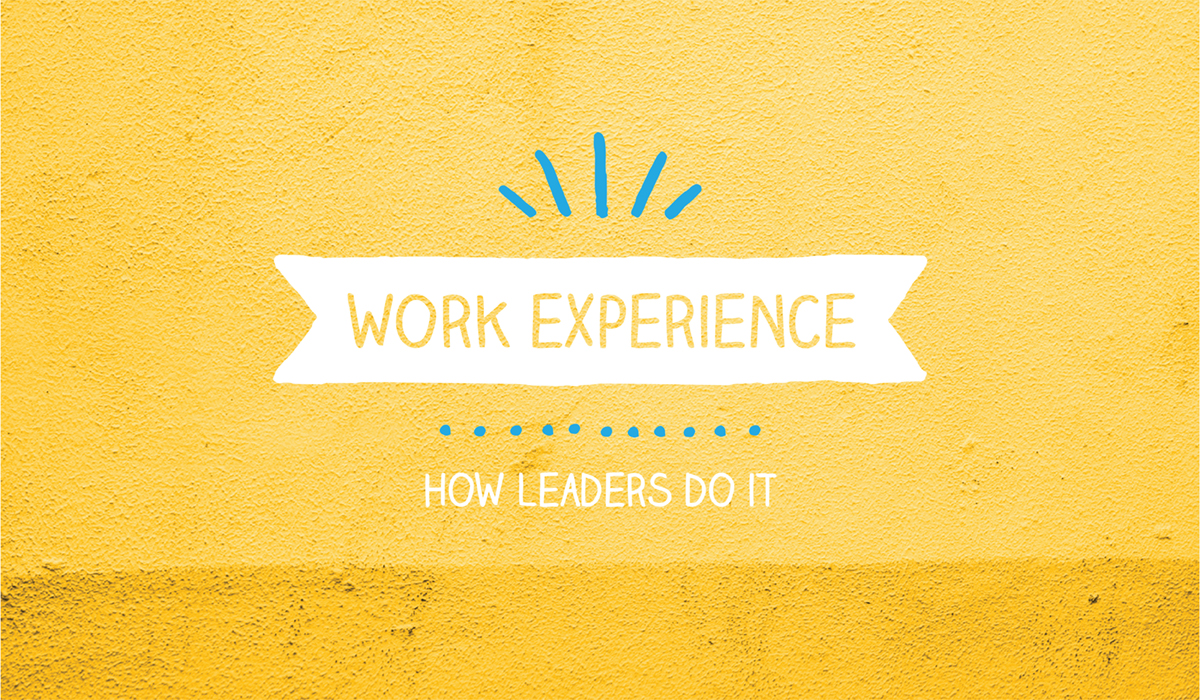
Work experience: how leaders do it
It’s a vexed question most of us in the workplace have confronted at some stage in our careers: who’s going to look after the work experience kid?!
As busy people in busy offices, we get it. We understand how the thought of having to ‘babysit’ the high school kid might seem like a whole lot of time and effort you simply can’t afford to spend this week.
As youth work specialists, however, we know the impact a really great week of work experience can have on a young person, especially one who’s doing it tough.
So, to try and encourage more of the good and less of the bad, we’ve come up with the key ingredient to make work experience a positive experience for both student and employer…
It’s leadership.
When work experience goes right, it’s because leaders have brought their best qualities to the table.
Positivity
A leader sees opportunity, where others see only work. Leaders see work experience as a benefit to their business. The chance to:
- develop their staff’s people management, mentoring and training skills
- promote the skills and attitudes they want to see in the workforce
- grow or enhance their reputation as an employer of choice
- participate in building a stronger community by supporting the training needs of the next generation
- harness young and creative minds. It’s not unusual for the least experienced person in the room to come up with an insightful suggestion or offer a new insight.
Empathy
Leaders are adept at putting themselves in other people’s shoes. Recognising the stranger in a strange land, a leader takes the time to put the student at ease by:
- having procedures and people in place, ready to welcome students on day one and make sure their week is a challenging but rewarding one
- not sweating the small stuff. Leaders know not all playing fields are even. Some will come dressed in the latest styles and be naturally effervescent, others will do the best they can. If a student’s clothes don’t look quite right or if words don’t come easily, kindness and encouragement takes the place of criticism – even constructive criticism in these areas at this stage.
Communication Skills
Leaders are excellent communicators. When it comes to work experience, they take the time to:
- explain the rationale for work experience to all staff, ensuring everyone understands why their organisation chooses to participate in work experience
- lay the down the ground rules about what’s ‘cool’ and ‘not cool’ when it comes to assigning tasks and interacting with students. Often, it’s the off-the-cuff remarks or body language from staff that can turn a good experience sour
- encourage questions and feedback, from staff and students, so improvements can be made where necessary.
Inspiration
Leaders don’t bury the mundane or the tough stuff, but they also recognise work experience isn’t about access to free manual labour – it’s about introducing students to the world of work in general. It’s meant to test their ideas and assumptions, build general skills, and potentially inspire a future career.
These things can only be achieved by enabling students to:
- observe a variety of work being done
- get involved in work and be given the chance to gain a sense of achievement
- ask questions about the workplace
- understand what kind of work opportunities there are in the industry
- understand what subjects, study and further training they will need to do
- learn what showing initiative or being enterprising looks like
If you want to foster and inspire a better future, welcome students in. Give them a chance to look around. Explain what’s what and who’s who. Encourage them out of their shell. Help them envisage the possibilities.
The benefits will be far greater than you can imagine.
We’d love to hear from you on this. Do you see your workplace as a leader in this area? Or have you got some learning of your own to do?

 EMERGENCY ACCOMMODATION
EMERGENCY ACCOMMODATION



